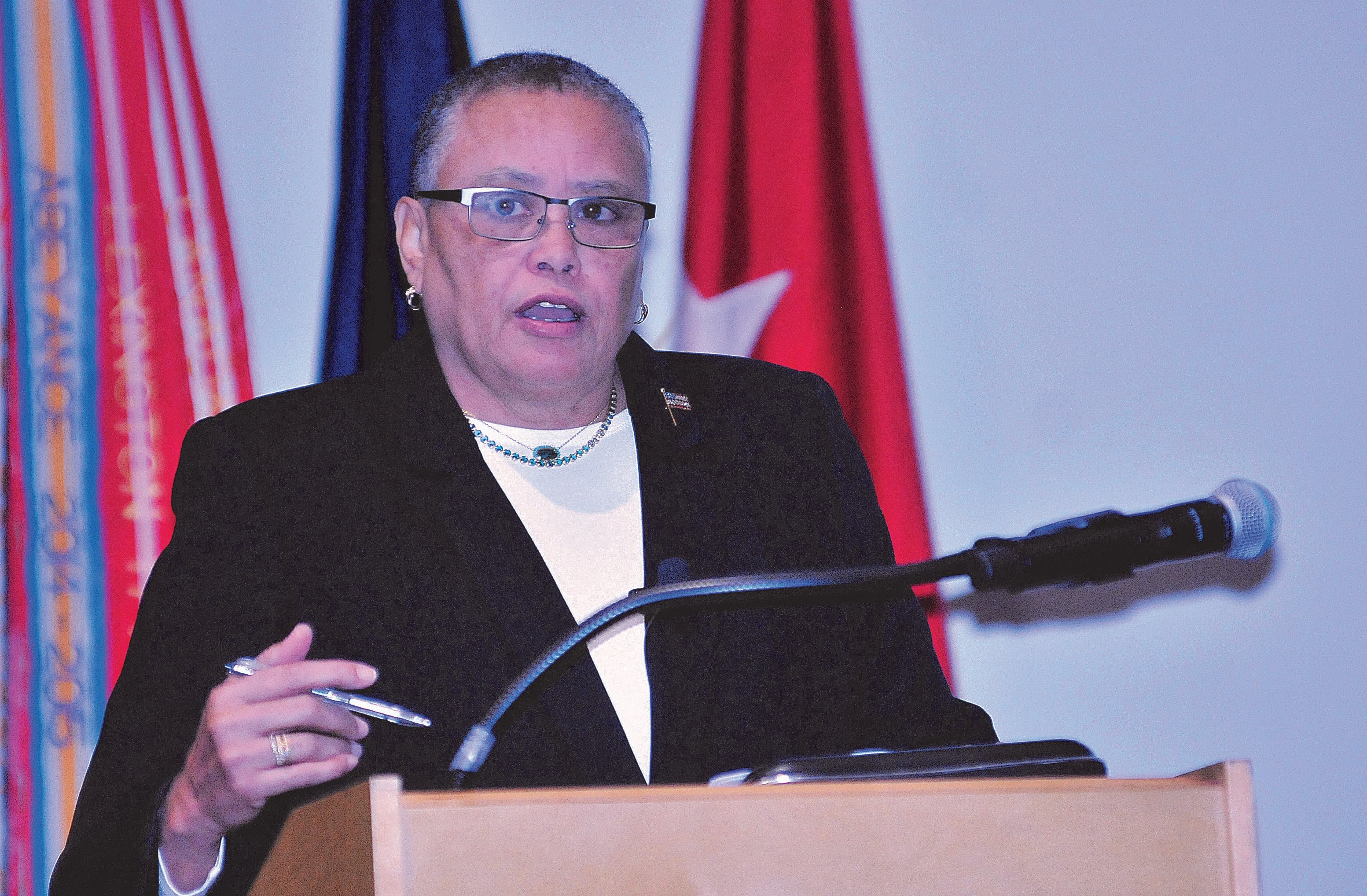Retired Army Master Sgt. Andrea Motley Crabtree is not afraid to jump over hurdles, or rather, dive head-first into them.
The former soldier was the Army’s first female deep-sea diver and the first Black female deep-sea diver in service.
Crabtree spoke in January at a Martin Luther King Jr. event at Fort Lee, Virginia, recalling just how difficult it was for her to earn the Army diver badge, according to a recent service release.
“I had to prove myself over and over and over again every day,” she said at the event.

The Westchester, New York, native was the only Black person and the only woman among eight soldiers, and more than 20 others, in her 1982 class at the U.S. Navy Deep Sea Diving and Salvage Training Center at Panama City Beach, Florida, according to the release. Crabtree was one of only two soldiers and nine sailors to earn the coveted diver badge.
It had been less than a decade since Donna Tobias became the Navy’s first female deep-sea diver in 1975, according to Naval History and Heritage Command.
Despite her accomplishment, Crabtree said by entering into a predominately white, male career field she faced a series of discriminatory actions.
After roughly eight months at her first assignment at Fort Belvoir, Virginia, Crabtree said she deployed to South Korea, because she did not fit in with the dive community’s “elitist culture.” Not long after, her military occupational specialty was again restricted only to men.
Today, the dive MOS is once again open to males and females, and the deep sea diving school trains more than 1,200 military divers across the services each year.
At the event last month, Fort Lee commanding general Maj. Gen. Mark T. Simerly introduced Crabtree, noting how she “helped to challenge and remove discriminatory racial and gender-based barriers.”
The late Master Chief Petty Officer Carl Brashear, who in 1954 became the sea service’s first Black master diver, also helped pave the way for future generations of divers and Black service members. His son, retired Chief Warrant Officer 5 Phillip Brashear, reflected earlier this week on his father’s legacy to the crew of the Wasp-class amphibious assault ship Iwo Jima.
“In the words of my father, it is not a sin to get knocked down. It is a sin to stay down,” Phillip Brashear, said at the Black History Month event, The Virginian-Pilot reported. His father’s extraordinary journey was featured in the 2000 film “Men of Honor.”
For Crabtree, who shared in her speech that she knows what it is like to be hated because of her race and for being a woman, there has been a considerable change for good over the last few decades, but there is still much more to be done.
Jonathan is a staff writer and editor of the Early Bird Brief newsletter for Military Times. Follow him on Twitter @lehrfeld_media





